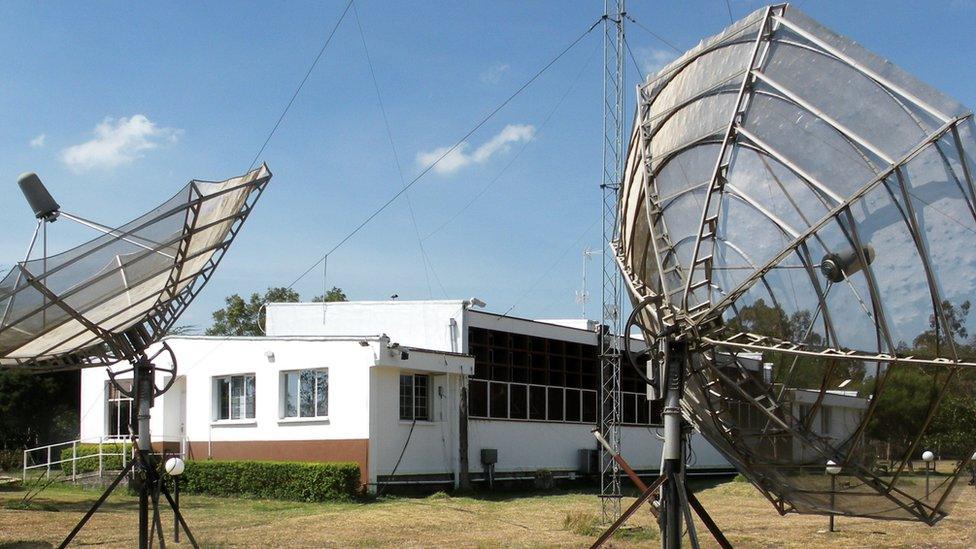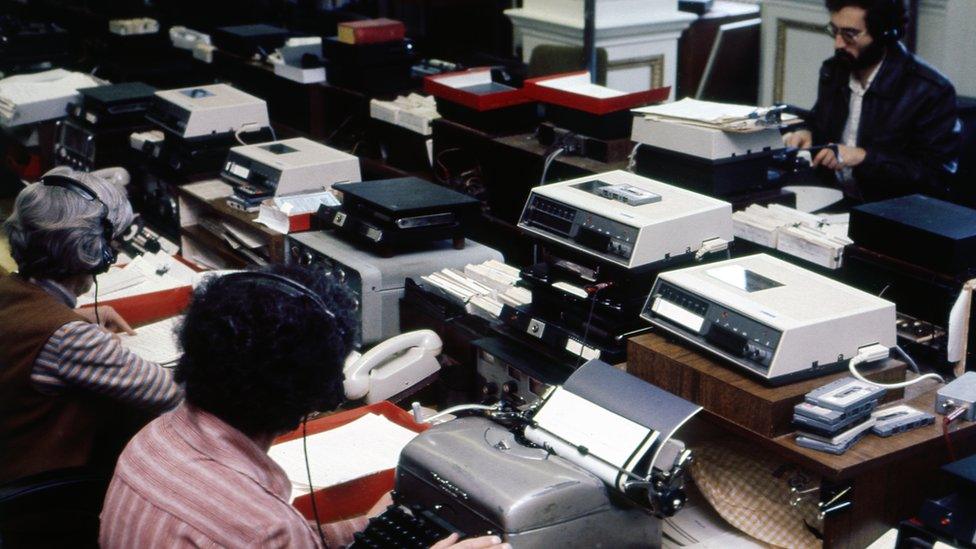About 100 BBC Monitoring jobs to be axed amid £4m cuts
- Published

BBC Monitoring, which has listening posts across the globe, has announced nearly a third of its staff will be axed amid £4m cuts
At least 98 jobs at the BBC Monitoring department are to be cut ahead of a £4m reduction in funding.
The department, which has 320 staff, analyses local media from 150 countries in 100 different languages, but the operation is to be scaled down.
The World Service said the Mazar-i-Sharif bureau in Afghanistan will be closed and new bases will open in Istanbul and Jerusalem.
The team will relocate from Caversham Park in Reading, its base since 1943.
The BBC said it would begin consultations with unions shortly.
The loss of jobs will mean a reduction of nearly a third.

BBC Monitoring's headquarters has been based in Caversham Park since 1943, but it will now relocate to offices in London
It is understood that the service's new headquarters will be based in London.
At least 65 jobs in the department are being cut in the Reading office.

What is BBC Monitoring?

BBC Monitoring began in 1939 as an operation to allow the British government to access foreign media and propaganda during the Second World War
BBC Monitoring was set up in 1939 to tap into foreign broadcasts and propaganda during the Second World War
The service was independent from the BBC, and paid for by the Ministry of Defence, the Foreign Office and the BBC World Service
Since its inception, it has provided coverage of the Cold War, the Yugoslav War and most recently, the Arab Spring
The service translates communications from 100 languages from 150 countries, with offices across the globe
In 2013 the service began being paid for by the licence fee


Hundreds of journalists and translators have worked at Caversham Park to provide the BBC and UK government with news from across the globe
The service, which provides international content and communications to BBC News, governments and commercial clients, was previously funded by the UK government, but since 2013 it has been paid for by the licence fee.
World Service Group director Francesca Unsworth said: "Like all media organisations, BBC Monitoring has to keep pace with the new landscape of digital and social media.
"And, like the rest of the BBC, Monitoring needs to make savings."
The service's budget for 2016/17 was £13.2m, but £4m has been cut amid cost-cutting across the BBC.